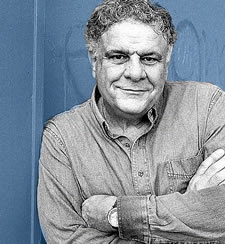Sounds of artillery fire and bombs exploding remain with Arthur Muñoz long after watching segments of Ken Burns' PBS World War II documentary, "The War." The film has awakened his memories of fighting Imperial Japanese forces on beaches and in the thicket of palm trees in the South Pacific.
Sleeping has become difficult.
Tonight, the 83-year-old veteran gets to share some of those experiences publicly with viewers of KLRN, San Antonio's public television station.
Muñoz is among dozens of local Allied veterans the station has interviewed for its two-part series "World War II: In Our Words," which airs at 7 tonight, before Burns' documentary.
Despite claims from some Hispanic activists, the local production wasn't intended to placate protesters who argued that Burns failed to acknowledge Hispanics' role in the Second World War in his documentary, said KLRN spokeswoman Katrina Kehoe.
"We knew we could take it further here," Kehoe said. "We're a military town and we knew there would be stories here."
Lee Dunkelberg, producer of the local film, said the idea for "In Our Words" came up "even before that issue surfaced."
Dunkelberg said it was only natural that Hispanics would be featured in his documentary, considering the city's prominent Hispanic population.
"Our goal was to use as many people as possible," he said. "We want everybody's story to be told."
While the San Antonio Coalition of Defend the Honor has called for a boycott of Burns' documentary and its related products, the organization has remained silent about Dunkelberg's two-hour production. The second part of the show, which is being finalized, will air at 7 p.m. Oct. 4.
The coalition's Gayle Arambula said she views "In Our Words" as an effort by KLRN to fix "an inequity that they can't address." Arambula said the local station has no choice but to air Burns' documentary.
The Defend the Honor grass-roots campaign advocated for a complete re-edit of Burns' film to adequately show Hispanics' contribution to the war. The Public Broadcasting Service responded by hiring a Latino producer from Austin, Hector Galán, to contribute material about Hispanic veterans to Burns' documentary.
Galán's work resulted in an additional 28 minutes of footage spread across the ending of the first, fifth and sixth installments of the seven-part documentary. Tonight's installment is the fourth one.
Peter Vallecillo, another member of the San Antonio coalition, said he viewed the ending of the first installment to see how the additional footage was treated and found it to be "tacked on."
"It was sort of like a footnote," he said. "It didn't flow with the rest of the film."
Vallecillo said despite PBS' decision not to rewrite the documentary, the grass-roots campaign has accomplished at least one of its goals. "It created an awakening of other Latino veterans out there," he said.
Muñoz is one of them.
The retired San Antonio police detective said he doesn't feel slighted by Burns' documentary. However, he said that if it weren't for the marketing of the film and for KLRN's efforts to do related programming, he wouldn't have come forward to tell his stories.
Muñoz, who has written short stories and poetry, penned an essay for the San Antonio Express-News in 2001 in which he talked about his memories of a shoeshine stand on Agnes Street in Corpus Christi.
"A photo of me, during my days at Marine boot camp, was there," he wrote.
"Without ceremony, honor guards, flags or taps, those rough unpainted walls were recording a neighborhood's pain and contribution," the essay continued. "The shack was torn down many years ago, but those walls, those faces and a home-front 'soldier' who did his part are a big part of my memories."
Tonight, Muñoz talks about the darker side of his memories: the bombings he encountered in the Battle of Guadalcanal, a province in the Salomon Islands, while stringing telephone lines high atop palm trees.
"We called ourselves sniper bait because they could see you," he said. "You could hear the bullets zing by."
jzarazua@express-news.net |

